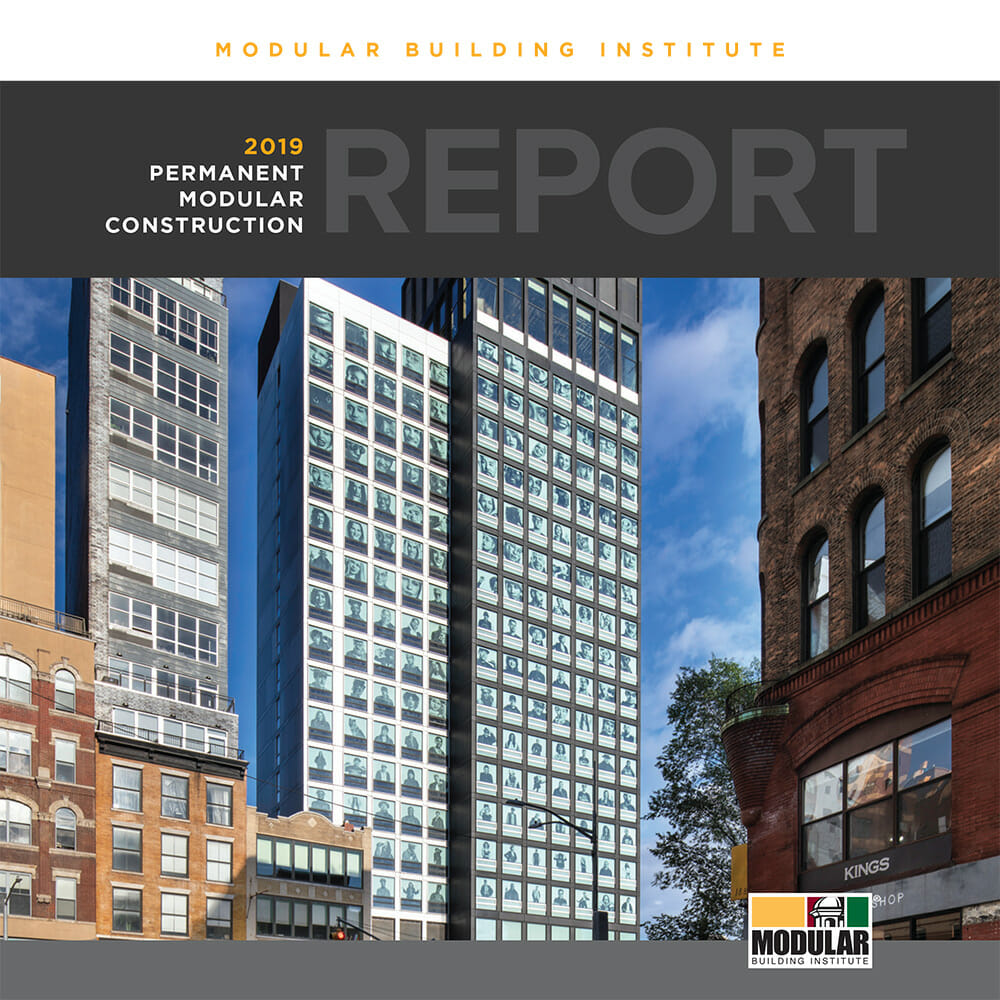Permanent Modular Construction Report 2019
Overview of the Modular Construction Industry
Unlike the federally-regulated HUD-Code manufactured housing industry, the modular construction industry is regulated primarily at the state and local levels by building code and agency administrators. As with site-built structures, a modularly constructed facility must meet the local codes where the building is going to be located.
There is no specific “modular building code” or exceptions for a building constructed utilizing the modular construction process. It is simply a different and more efficient process to assemble the materials and components of a building. Modular construction can be utilized for residential, commercial, or industrial applications. MBI represents the commercial sector of the industry.
Commercial Modular Buildings are nonresidential factory-built building components and structures designed to meet all applicable building codes. Commonly, these buildings are constructed in accordance with the International Building Code (IBC) in the United States, the National Building Code (NBC) in Canada, or a local version modeled after these codes. In this context, prefabricated mechanical, electrical, or plumbing systems (MEP systems) are not included for industry revenue and production figures.
The commercial modular building industry is comprised of two distinct divisions, both represented by MBI.
Relocatable Buildings (RB)
Relocatable Buildings, as defined in the International Building Code, are a partially or completely assembled building constructed and designed to be reused multiple times and transported to different building sites. This segment of the industry maintains a fleet of relocatable buildings offered for sale or lease to customers.
Permanent Modular Construction (PMC)
PMC buildings are subject to the same building codes and requirements as site-built structures, depreciate in much the same manner, and are classified as real property. This segment of the industry provides construction-related services for the successful design, manufacturing, delivery, installation and finish-out of commercial and multi-family buildings.
PMC is an innovative, sustainable construction delivery method utilizing off-site, lean manufacturing techniques to prefabricate single or multi-story whole building solutions in deliverable volumetric module sections. PMC buildings are manufactured in a safe, controlled setting and can be constructed of wood, steel, or concrete. PMC modules can be integrated into site-built projects or stand alone as a turnkey solution, and can be delivered with MEP, fixtures and interior finishes in less time, with less waste and higher quality control compared to projects utilizing only traditional site construction.
This report focuses on permanent modular construction. Data for this report was gathered from multiple sources including:
• MBI member survey – Each year, MBI asks all members for data regarding their annual revenues, sources of revenue, markets served, production, and total employees.
• MBI’s project database – Through the annual Awards of Distinction contest, MBI gathers specific project data to calculate average square footage of buildings by market type, average days to complete by market type, modular project cost, and total project costs.
• Hallahan & Associates – MBI contracts with Hallahan & Associates for additional production data by market and region. This data was obtained by direct conversations with state administrative agencies regarding labelling programs and production as well as analyzing data from the U.S. Census Bureau on new construction starts.
• Construct Connect Insight (formerly Reed Construction Data) – MBI uses this database to determine the baseline for new construction starts in key markets and to measure overall industry market share.
• Publicly available data such as news stories, public filings, and corporate websites.
Every effort has been made to ensure the accuracy and reliability of this data. However, in some cases, MBI’s best estimates and experience were used. Given that no one single source for this information exists regarding production, revenue, and market share for the entire commercial modular industry in North America, MBI feels that this report represents the most comprehensive and accurate information available.


